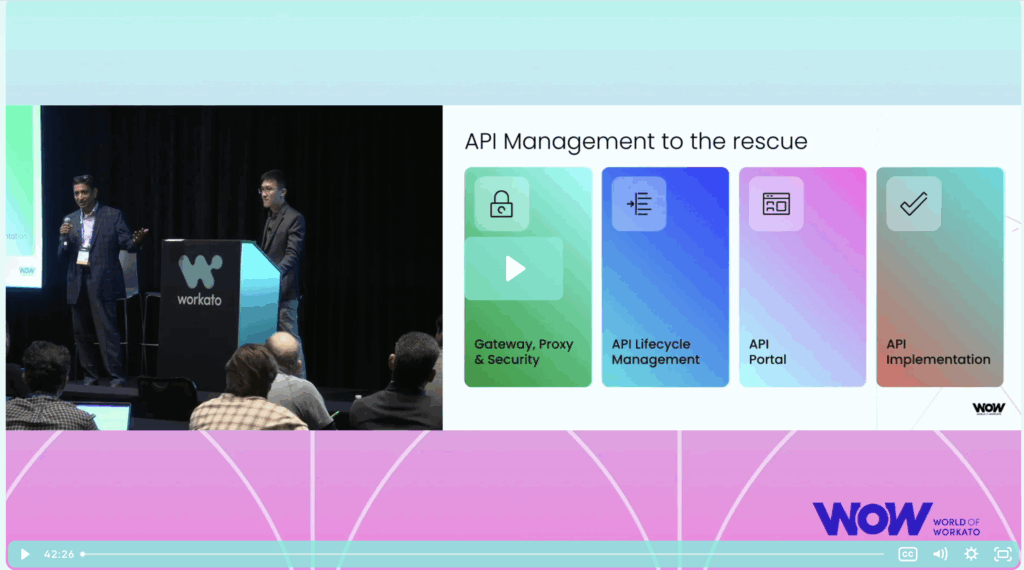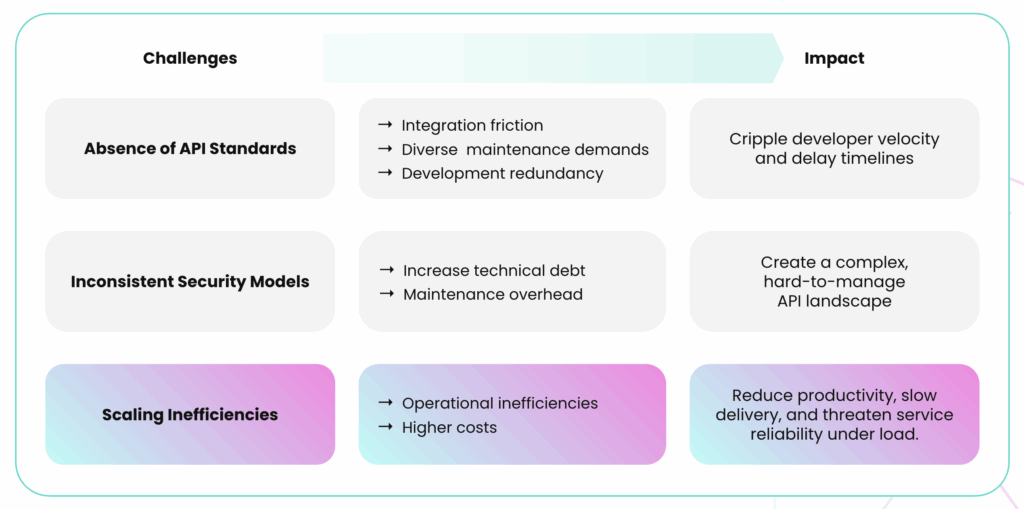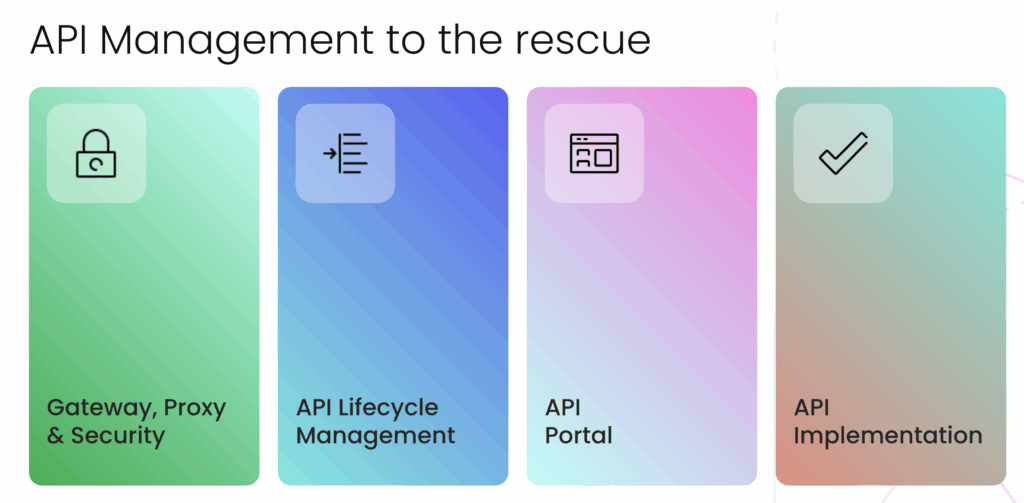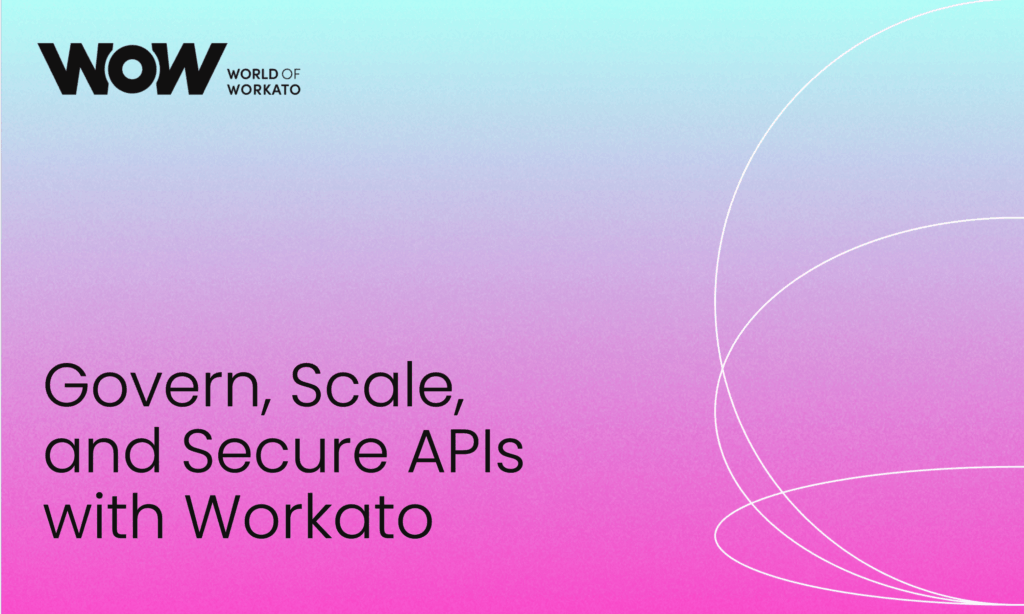Most enterprises rely on APIs to connect their systems, but governing them at scale is where the real challenge lies. Too often, organizations end up with a “wild west” of APIs – no central catalog, inconsistent security, and governance models that either frustrate developers or leave the business exposed.
At this year’s Workato’s WOW Conference, I had the chance to dive into this topic alongside Zscaler’s Gopal Parthasarathy and my colleague Diego Gomez. Together, we explored why APIs are often a hidden risk, how to build governance frameworks that balance speed with control, and what it takes to scale safely in an AI-driven world.

Watch the full session to see all of the insights!
The challenge of governing APIs
APIs have become the backbone of digital business, powering customer experiences, unlocking data, and enabling automation. But their growth has also introduced new risks.
- Accidental exposure is common, often caused by outdated standards, missing SOPs, or rushed deadlines.
- Rigid governance slows down teams, creating shadow APIs that escape oversight.
- No central visibility means APIs are duplicated, inconsistent, or invisible to other teams.
As Gopal put it, without a catalog and standards in place, “you quickly find yourself in a wild west.”

Lesson 1: Security must be the default
The first step is making sure APIs cannot be exposed by mistake. In Workato, every API starts private, and access requires an explicit client. Developers do not have to remember to secure their work; it is built in from the start.
Zscaler leaned on this model to unify security policies across teams. Instead of each consumer asking for a different authentication method, Workato let them apply consistent policies while still supporting the flexibility developers wanted.
The result was security without bottlenecks.
Lesson 2: Catalogs unlock reuse
APIs are only valuable if people can find and use them. That is why visibility is just as important as security.
At Zscaler, multiple teams were creating APIs with no way of knowing what others were building. The lack of discoverability meant wasted effort and low reuse. By centralizing APIs into Workato’s developer portal, they created a single place to catalog, test, and request access.
This shift turned APIs into a shared enterprise asset, not just team-by-team projects.
Lesson 3: Governance enables scale
Without structure, API programs collapse under their own weight. The Workato approach focuses on balancing control with self-service:
- Policies for rate limits, quotas, and access.
- Proxies to modernize legacy APIs and standardize responses.
- Composite APIs to orchestrate multiple services behind one interface.
- Asynchronous APIs that free long-running processes from blocking the consumer.
Gopal highlighted how this consistency gave Zscaler the ability to grow API usage without chaos, while Diego’s live demo showed how quickly these patterns can be put in place.

Why it matters now
The foundations we discussed go beyond API management. They are the same foundations enterprises will need as they embrace AI and agentic automation. APIs are the interfaces agents will use to get real work done, and if those APIs are not governed, the risks multiply.
By making governance secure by default, visible through catalogs, and scalable through consistent frameworks, Workato ensures that APIs are not only safe today but also ready for the next wave of innovation.
Closing thoughts
APIs are multiplying faster than most organizations can track. Left unchecked, they create risk, duplication, and barriers to innovation. What we shared at WoW is that it does not have to be this way.
With security built in from the start, a central catalog to drive reuse, and governance frameworks that balance control with agility, organizations can turn APIs into an accelerator. As AI and agentic automation move into daily operations, this foundation becomes even more critical. APIs will be the building blocks agents rely on, and only governed, scalable APIs can make them reliable at enterprise scale.
In short, governance is not a brake. It is the key to unlocking speed, trust, and readiness for the future.

Ready to learn how to govern and scale your APIs?
Watch the full conversation with Zscaler and Workato to see how they govern, scale, and secure APIs.
